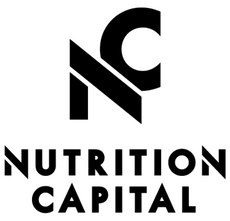Vitamin and mineral supplements are dietary products designed to provide essential nutrients that may be lacking in an individual's diet.
These nutrients play crucial roles in various physiological processes, supporting overall health and well-being.
While a balanced diet is the best way to obtain these nutrients, supplements can be helpful for individuals who have specific deficiencies, dietary restrictions, or medical conditions that hinder nutrient absorption.
Key points about vitamin and mineral supplements:
1. Types of Supplements: Vitamin and mineral supplements come in various forms, including tablets, capsules, liquids, powders, and gummies. Some supplements may contain a single nutrient, while others are multivitamins that combine several vitamins and minerals.
2. Common Nutrients: Common vitamins include vitamin C, vitamin D, vitamin B-complex (B1, B2, B3, B6, B12, etc.), and vitamin A. Essential minerals often found in supplements include calcium, iron, magnesium, zinc, and selenium.
3. Nutrient Deficiencies: Deficiencies in certain vitamins or minerals can lead to various health problems. For example, vitamin D deficiency can affect bone health, while iron deficiency can cause anemia.
4. Purpose and Benefits: Vitamin and mineral supplements are used to address specific deficiencies, support overall health, boost immunity, enhance athletic performance, and aid certain medical conditions.
5. Risks and Side Effects: While supplements can be beneficial, excessive intake of certain vitamins or minerals may cause adverse effects. For instance, taking high doses of vitamin A over an extended period can be toxic.
6. Quality and Regulation: It's essential to choose supplements from reputable brands that adhere to quality standards. The supplement industry is regulated, but not as strictly as pharmaceuticals, so consumers should be cautious and informed.
Frequently Asked Questions (FAQs) about Vitamin & Mineral Supplements:
1. Are supplements a substitute for a healthy diet?
No, supplements should complement a balanced diet, not replace it. A varied diet with nutrient-rich foods remains the best way to obtain essential vitamins and minerals.
2. Can supplements prevent or cure diseases?
Supplements cannot cure diseases, but they may help address nutrient deficiencies that contribute to certain health conditions. Always consult a healthcare professional for appropriate advice.
3. Are there risks of overdose with supplements?
Yes, some vitamins and minerals can be harmful in large doses. Stick to recommended dosages, and if you're unsure, consult a healthcare provider.
4. Who may need supplements?
People with specific dietary restrictions, malabsorption issues, pregnant women, vegetarians, vegans, and the elderly may benefit from supplements. However, individual needs vary, so it's best to consult a healthcare professional.
5. Can I take multiple supplements together?
Taking multiple supplements concurrently can lead to excessive intake of certain nutrients. It's essential to be cautious and seek advice from a healthcare professional to avoid potential adverse effects.
6. Do supplements have an expiration date?
Yes, supplements do have expiration dates. Discard any expired products as they may lose potency and effectiveness over time.
Remember, before starting any new supplement regimen, it's crucial to talk to a healthcare professional, as they can assess your specific needs and ensure you're taking the right supplements in appropriate doses.
Here at Nutrition Capital we advise you to consult a healthcare professional or a registered dietitian to ensure it aligns with your health and fitness goals. Additionally, individual responses to supplements can vary, so it's essential to monitor how your body reacts and make adjustments accordingly.

